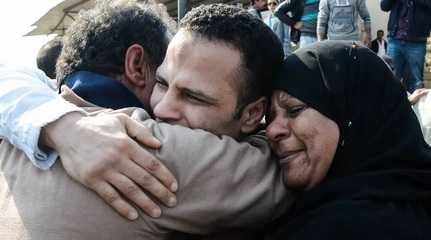
3 October 2022; MEMO: The Presidential Pardon Committee in Egypt yesterday announced the release of a new batch of political prisoners who are being held in "pretrial detention".
A statement by the committee, published by its member, lawyer Tariq Al-Awadi, on Facebook, revealed that "releases are carried out on Sunday and Monday in coordination with the relevant agencies." He did not provide details of how many people would be released.
This is the fourth pardons list in 17 days, as 46, 28 and 39 pretrial detainees were released on 15, 20 and 25 September, including prominent labour activist Haitham Mohamadin, two journalists and five women, according to Anandolu news agency.
The statement indicated that "the decision aims to release a new batch of detainees who are not involved in violence cases, and who do not belong to terrorist groups."
"We look forward to more releases in the coming period," he added.
READ: Egypt releases 41 detainees, including political activists
In a second statement, Al-Awadi stated that 50 prisoners were released on Sunday's list. The prisoners are involved in cases dating back to 2020, 2021 and 2022, and were tried before the Supreme State Security Prosecution on national security grounds.
He did not clarify whether this number included those who would be released today, or whether more detainees would be released today.
According to Egyptian law, the Public Prosecutor has the authority to release detainees held in pretrial detention, while the president has the right to pardon all or part of the punishment for those who have been sentenced.
The Presidential Pardon Committee was activated last April after being re-formed on presidential orders. This coincided with President Abdel Fattah Al-Sisi's call to start the first national dialogue since he came to power in the summer of 2014. It issues lists of presidential pardons and other judicial releases.
Egypt faces severe criticism because of its human rights record. There are some 60,000 political prisoners in Egypt being held in dire conditions, including being denied adequate medical care and being held on remand for more than the two-year legal limit.




